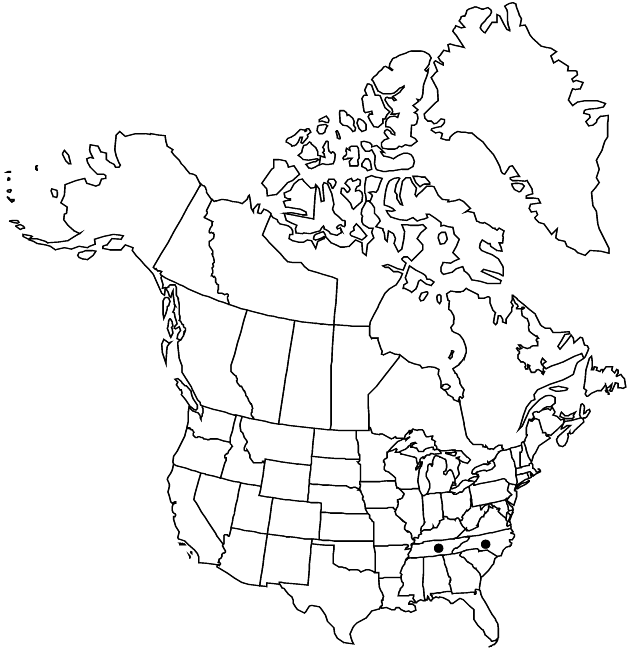Difference between revisions of "Solidago lancifolia"
Fl. South. U.S., 209. 1860.
FNA>Volume Importer |
FNA>Volume Importer |
||
| Line 30: | Line 30: | ||
|elevation=1100–1500+ m | |elevation=1100–1500+ m | ||
|distribution=N.C.;Tenn. | |distribution=N.C.;Tenn. | ||
| − | |discussion=<p>A few atypical plants of Solidago lancifolia with multinerved phyllaries grow along the border of Virginia and West Virginia.</p> | + | |discussion=<p>A few atypical plants of <i>Solidago lancifolia</i> with multinerved phyllaries grow along the border of Virginia and West Virginia.</p> |
|tables= | |tables= | ||
|references= | |references= | ||
| Line 54: | Line 54: | ||
|publication year=1860 | |publication year=1860 | ||
|special status= | |special status= | ||
| − | |source xml=https://jpend@bitbucket.org/aafc-mbb/fna-data-curation.git/src/ | + | |source xml=https://jpend@bitbucket.org/aafc-mbb/fna-data-curation.git/src/8f726806613d60c220dc4493de13607dd3150896/coarse_grained_fna_xml/V19-20-21/V20_259.xml |
|tribe=Asteraceae tribe Astereae | |tribe=Asteraceae tribe Astereae | ||
|genus=Solidago | |genus=Solidago | ||
Revision as of 15:22, 18 September 2019
Plants 60–160 cm; caudices woody. Stems 1–5+, erect, straight, moderately hairy in arrays. Leaves: basal withering by flowering; proximal cauline subpetiolate or sessile, tapering to broadly winged petiole-like bases, blades lanceolate, 110–180 × 2–35 mm, margins serrate (with 7–15 teeth), apices acuminate, abaxial faces sparsely hairy along nerves, adaxial glabrous or sparsely hairy; distal cauline sessile, blades narrowly elliptic, 60–110 × 11–15 mm, margins entire to slightly serrate (teeth 0–6), apices acuminate-cuspidate, faces glabrous or sparsely hairy. Heads 80–400 (usually 4–10 per branch) in short axillary and terminal racemiform/paniculiform arrays 11–43 cm. Peduncles 1–5 mm, moderately strigose; bracteoles linear, 0–2. Involucres campanulate 6.4–8.5(–9) mm. Phyllaries in 3–4 series, unequal, 3–10-nerved, acute to obtuse; outermost linear-lanceolate to narrowly ovate, 1.7–2.4 mm, innermost linear-oblong, 4–6 mm. Ray florets 5–8; laminae 2.3–4.5 × 1–1.5 mm. Disc florets (5–)6.2–8.1(–12); corollas (2.8–)3–3.3(–3.9) mm, lobes (1.3–)1.5–1.8(–2.1) mm. Cypselae (narrowly obconic) 1–1.7(–2) mm, moderately to densely strigillose; pappi (3.4–)4–5 mm. 2n = 90.
Phenology: Flowering late Aug–Sep.
Habitat: Woods, shaded to full sun along road embankments, at higher elevations
Elevation: 1100–1500+ m
Discussion
A few atypical plants of Solidago lancifolia with multinerved phyllaries grow along the border of Virginia and West Virginia.
Selected References
None.
